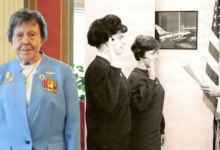Kidney cancer nurses ‘needed from point of diagnosis’

One in five kidney cancer patients are not being given a named specialist nurse at the point of diagnosis, a new survey has found.
The annual report from Kidney Cancer UK revealed some of the key issues facing patients on their cancer journey and highlighted the importance of having access to a nurse at every stage.
“If people know that they’ve got this named nurse, after that initial conversation they can go back and speak to them”
Hazel Jackson
Around 4,700 people in the UK die each year from kidney cancer – around 13 people every day.
The earlier kidney cancer is diagnosed, the better the outcome for patients.
However, Kidney Cancer UK’s latest survey revealed that one in four (23%) of kidney cancer patients were being diagnosed with other conditions before reaching the correct diagnosis.
Concerningly, this can result in delays to accessing treatment, said the report.
Hazel Jackson, a kidney cancer nurse specialist who works for the charity, told Nursing Times that misdiagnosis happens because, often GPs are not familiar with the symptoms of kidney cancer.
She said: “With kidney cancer being one of the rare types of cancer, it’s not something that GPs come across very often.
“Sometimes GPs may not actually see a kidney cancer patient ever in their entire career but that doesn’t mean that it’s not incredibly important for them to know what those symptoms are.”
The top symptoms associated with kidney cancer include back, flank and side pain, fatigue and blood in urine, but often these issues can be “put down to other things”, warned Ms Jackson.
“It’s just raising that awareness [to health professionals] that it could be [kidney cancer], so it’s worth keeping that in mind and not dismissing that as an option,” she added.
The charity’s report found that improved access to support and information for patients was needed throughout the kidney cancer patient journey.
One in five patients are not being given a named specialist nurse at the point of diagnosis, the survey warned.
Currently, NHS England standards state that patients with kidney cancer must have access to a ‘key worker’ as early as possible within their pathway of care, which it notes is normally a clinical nurse specialist.
Ms Jackson said that kidney cancer specialist nurses were a “integral part” of the clinical team.
“The nurse can almost act like a bit of a bridge sometimes,” she explained.

Hazel Jackson
“Because people can go for that meeting with the consultant and the consultant has given them that news and, with the best will in the world, it doesn’t always sink in and questions can come up later.
“They know then that they can go back to this named nurse, who knows them and knows their case, and ask these questions and get pertinent answers that will help them.”
Ms Jackson argued that it was important for patients to have a named nurse, to give support that feels more personal in what can be “a very lonely time”.
“They can build that therapeutic relationship, which can be so key when you’re going through something as life altering as a kidney cancer diagnosis,” she said.
Separately, the report found that most patients (79%) were told they had cancer in a way they understood, but one in three (37%) said they were unhappy with the way they were told.
Some 23% of respondents said it should have been said in a more sensitive way, while 6% said it felt rushed and that they needed more information.
More positively, almost all (94%) patients said they were able to discuss their treatment with a nurse or consultant, and 89% said they were given enough information about the side effects.
However, nearly half of patients (49%) reported that they had not been given enough information to take away and read later.
Just 1% said they were given details of a support line and less than 1% were given details of websites they could visit.
As such, Kidney Cancer UK has called for health professionals to be more proactive with signposting to free support services available to patients.
The charity also highlighted the need for patients to have as much information as possible about treatments to support informed choice.
Ms Jackson explained that this was where the key role of the kidney cancer nurse came in.
She said: “If people know that they’ve got this named nurse, after that initial conversation they can go back and speak to them.
“People felt that they weren’t really equipped with information, so they weren’t able to deal and cope with the news that they’d been given because they were left with a lot of ‘what-ifs’ and questions.
“So the more knowledge and information that we can give people, the better equipped they feel for moving forward and dealing with what’s happening.”
For professionals looking to direct kidney cancer patients to resources, Ms Jackson noted that Kidney Cancer UK had published online leaflets that provided guidance and information.







